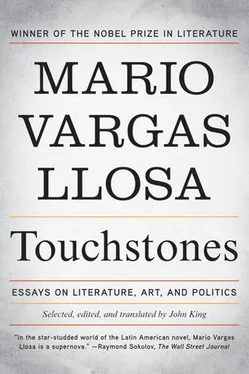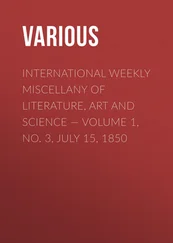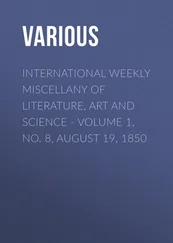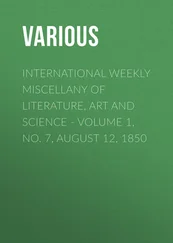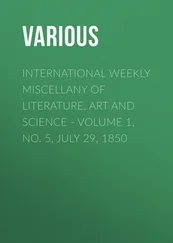Here is a man of action, but also a writer who did not allow politics to weigh down his writing, who was instead lucid and inventive enough to transform lived experience into successful fiction, moral stories that represent ‘the human condition’ in its most exemplary form. When he writes about Malraux, Vargas Llosa could in many ways be writing about himself.
Karen Blixen, the writer Isak Dinesen, also led a life of adventure — in her case in Africa — before turning to fictions which did not attempt to ‘reflect’ the world around her, but instead to express an unbridled fantasy. True to the creed of the ‘truth of lies’, Dinesen is a writer whose re-creation of history and life itself can express a more profound, a more coherent, truth than those writers who look merely to reflect society. Dinesen’s protagonists, like their author, are inveterate storytellers, characters akin to those of the Arabian Nights : ‘The truth of fiction was the lie, an explicit lie, so well constructed, so exotic and precious, so excessive and attractive, that it was preferable to truth’. Another great adventurer, Ernest Hemingway, offers a similar moral outlook to that of Malraux: the idea that life is always challenging, and that ordinary men and women can achieve moral greatness, a justification for existence, even though they might be defeated.
Vargas Llosa’s study of Günter Grass reveals another crucial aspect of his conception of the novel. The Tin Drum reveals a ‘colossal appetite to tell everything, to embrace the whole of life in a fiction…which, above all, defined the writing of literature in the century of the novel, the nineteenth century’. The novel is a ‘deicide’, offering ‘such a minute and vast reconstruction of reality that it seems to compete with the Creator, breaking up and re-forming — correcting — what He created’. For Vargas Llosa, great novels (and here Victor Hugo’s Les Misérables comes to mind) are often big novels. He also believes that the novel tends to find sustenance in its depiction of the city, although he acknowledges that the landscape of the country and its inhabitants often has a crucial role to play, especially in Latin American writing.
Günter Grass is the subject of Vargas Llosa’s most recent article, which I am reading while putting the finishing touches to this introduction. It is a response to journalists’ repeated questions about Grass’s declaration that he had served in the Waffen-SS for a few months when he was seventeen years old. For Vargas Llosa, this disclosure, which Grass had been hiding for some sixty years, was a sign of his humanity; the revelation did not jeopardise in any way Grass’s own radical novels or his frequent statements in favour of progressive democracy. Vargas Llosa had maintained a sometimes heated polemic with Grass in the 1980s regarding the nature of political development in Latin America, in which he accused Grass of double standards, of preaching social democracy for Europe and revolution for Latin America. In this 2006 article, however, he sides once more with his erstwhile opponent. In a revealing comment, he argues that the reason that Grass is currently being ‘pilloried’ is because he was really too much for the society he lived in, the last of a line of figures such as Victor Hugo, Thomas Mann, Albert Camus and Jean-Paul Sartre who believed that writers could also be guides or polemicists with respect to the great social, political, cultural and moral issues of our age. Nobody today, according to Vargas Llosa, believes that writers should be the ‘conscience of society’, and so figures such as Grass are debunked for maintaining these aspirations. The condemnation of Grass, then, is not a personal attack, it is rather an attack
on the idea of the writer that he had tried to embody, desperately, throughout his life: the idea of a writer who had opinions on and debated everything, who wished that that life could be moulded to dreams and ideas, in the same way as fictions, the idea that the writer’s function was most important of all because writers do not just entertain, they also educate, teach, offer guidance, give directions and offer lessons. 4
Shifting to apostrophe, Vargas Llosa concludes: ‘This was another fiction that captivated us for a long time, Günter Grass, my friend. But it is over.’ This blend of pessimism, conciliation and a very clear wistfulness, an elegiac tone, can be found in several articles in this book concerning the role of writers and intellectuals and the social function of literature. It is also very clear in his most recent novel, Las travesuras de la niña mala ( The Bad Girl ).
With Arguedas and Neruda we look at two literary figures from Latin America. Vargas Llosa has long been fascinated by his compatriot Arguedas: he was the subject of one of Vargas Llosa’s first published articles, in 1955, and a book-length study in 1996 entitled La utopía arcaica: José María Arguedas y las ficciones del indigenismo ( The Archaic Utopia: José María Arguedas and the Fictions of Indigenismo ). In the opening chapter, Vargas Llosa argues that Arguedas was one of a generation of writers and intellectuals for whom social issues were more important than purely artistic or literary concerns: ‘This idea of literature, that Arguedas embraced, often at the expense of his talent, did not allow a writer to be responsible just to him or herself…it demanded of a writer ideological commitment and political involvement. Writers had to become, through their writings and their words, actively involved in finding solutions to the problems of their country.’ 5In the case of Arguedas this meant exploring the genre of indigenismo , which sought to represent the indigenous community of Peru in literature and art and, following the teachings of the Marxist intellectual José Carlos Mariátegui and others, concentrate on the political rights and revolutionary potential of the Indian population. The young Vargas Llosa sympathised with the radical aspects of this creed, although he was never convinced that the main responsibility of a Peruvian writer was to concentrate on Andean, Indian culture. He always rejected indigenismo as a genre, while pointing out Arguedas’s successes as a writer, almost despite the burden of social and political responsibility placed on him. But over the years, especially following his disenchantment with Marxism from the early 1970s, Vargas Llosa came to feel that the ‘archaic utopia’ of Indian life was just that, both utopian and increasingly out of step with the modernisation of society, and that socialist solutions, based on pre-Columbian social organisation as advocated by Mariátegui, were equally utopian. These views, intricately conveyed in Utopía , have consistently been attacked by Vargas Llosa’s critics, who continue to support a Mariátegui-style analysis of indigenous communities. These debates have become more acute in recent times, when left-wing governments in Latin America often espouse the cause of indigenous rights, as in the case of Evo Morales in Bolivia.
In the late 1970s, Vargas Llosa criticised the Chilean poet Pablo Neruda’s support for Communist regimes, accusing him of being Manichean and dogmatic in his politics. In a recent essay, however, he offers a most sympathetic portrait of Neruda. He stresses the sensual man behind the symbol of Latin American social poetry, as well as expressing his own preference for Neruda’s early surreal poetry, written in the late 1920s and early 1930s. He remembers that, despite Neruda’s constant embrace of socialist causes and his long commitment to the Communist party of Chile, he was often caught in ideological disputes, attacked by the dogmatic left. One example of this was at the famous PEN Club meeting in New York in 1966, which attracted many writers from Latin America, but which was vilified by the Cubans, who sought out Neruda for their specific opprobrium at having accepted an invitation to appear in the imperial north. Despite constant attacks from critics, Vargas Llosa’s Neruda is a man who at the end of his life — he died of cancer a few days after the Chilean coup of 11 September 1973 — was looking to forget ideological differences and accept erstwhile enemies. Students of Vargas Llosa might also remember the remarkable tendency in his earliest novels, written in the 1960s, to imagine unlikely reconciliations (for example, between Alberto and Jaguar in La ciudad y los perros ( Time of the Hero , 1963), and the doctor and the priest in Conversación en la catedral ( Conversation in the Cathedral , 1969)). It is as if, in some Borgesian way, the early writer has already imagined this, his later self.
Читать дальше
